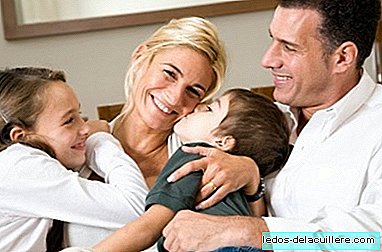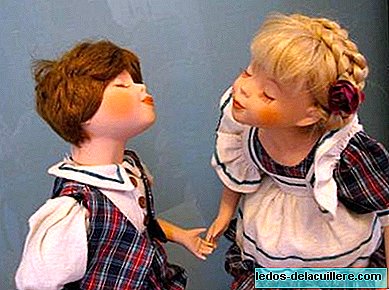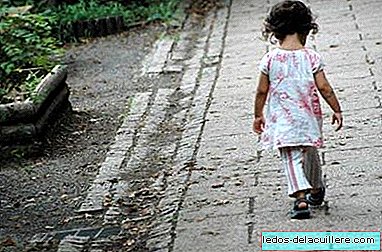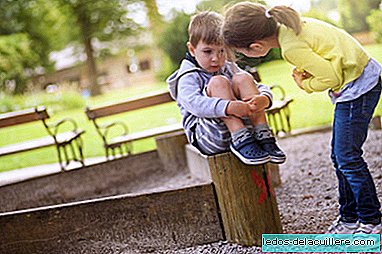
The interviews I do usually give me great satisfaction, but I must say that, on this occasion, I loved it talk to the psychologist Ana María Valenzuela and discover that a professional thinks like me in these matters. We will continue learning with her about Positive Psychology, limits, emotions and negative thoughts and also about positivity and talents.
Is it good for children to dare to question everything?
One of the strengths of which positive psychology speaks is precisely the ability to have a critical thinking and an open mind.
Questioning things is nothing more than exercising this strength. Of course, sometimes we need children to respond quickly to our request, because it is not a good time to be able to give explanations, whether due to real urgency or danger, or because we have a certain person before us. In those cases, there must be previous work with them so that they understand that we cannot always give all the explanations, which must rely on our criteria a bit blindly.
You are absolutely right, but how to get our children to have that trust in us?
Being authentic and honest with them, with ourselves and with the rest of the people with whom we interact. If we have failed in the past, let's admit it sincerely. Having good communication skills also helps a lot.
Should we lie to children?
What do you think? And now don't ask me about the Magi because this is one of the great intellectual contradictions of the world, something that I rationalize by appealing to the virtues of fantasy and creativity, but that many people do not accept as a valid argument. Do you remember what you were asking me to question everything? Well, there are things that belong to the realm of beliefs not based on anything real, they are an act of pure faith, and no one convinces us otherwise. Another question would be, should we tell the whole truth? And here my answer would be that it is not always necessary that you know all the details of all situations. I will give an example to see if it is understood: yesterday and today everyone is commenting on the hidden accounting situation of a political party, right? Now think of an 8-year-old boy who finds out and starts asking questions. The answers will be adapted to your previous knowledge of the situation, and will stick to what he asks, correct? If the child is 4 years old, he will be answered differently, without lying to him, but maybe without giving him so many details. And if you are 14, you can explain more things and using other words.
And what do we do if we discover that our children have cheated or lied to us?
What has led you there? I need to know what happens to him, how he feels, what he needed. How can I reinforce what is naturally healthy and positive in it? How can I help you not need to lie to me?
Do you think the punishments are positive in some extreme cases?
No. In that I am categorical. Punishment is an adult's need to say the last word and remain as a recognized authority.
That need arises from the helplessness we feel as children when the elders sent and we had to manage to get our way and still that was not valid. So the "valid" way is to send now that we are "the elders." If you feel that your son has cheated, punishing him will not solve anything in the present, nor will he prevent him from deceiving you again in the future. It does not work.
But what if the child has aggressive or dangerous behaviors?
I answer the same as when you used to ask me about cheating. If a child is showing something negative, it is because he is not at ease, what can I do to help him be at ease? Sometimes, we can help you express that aggression in another way, or accompany you in that dangerous so that it is not so much. Other times it is simply impossible to do that, and then we have to assume the uncomfortable role of preventing the aggression from repeating itself or that the child puts himself in danger or does so with others. But preventing that is not punishing him. I don't talk about hitting him with a slap or leaving him without TV, without movies or without going to camps. I am talking about literally getting in the way and preventing it, accompanying you in the whole process of calm, and then talking calmly to see what happened and what we can do next time.
What are the appropriate limits that we should set for children?
What is the right size of a room so that you are comfortable in it? Sorry, I know it crashes, but I hate the word limit. Instead of interpreting it as delimitation, my head interprets it as limitation, and I hate feeling limited. However, the comparison that Rebeca Wild makes in her book "Freedom and limits, love and respect," I liked, squared me.
I really liked it too, yes.
He compares them to a wall, which delimits spaces, prevents falls, supports the roof, etc. So it depends on who you are, who your child is and where you are, the limit will be beyond or beyond. So in general, if there is no danger and there is no aggression towards another or towards oneself, the limit will be set by your imagination.
And what do we do with the defects or failures of our children?
Love them. Do you know someone perfect? Look better at his talents, everything he could do if he wanted to. Accompany him in his self-discovery. Fascinate with him.
Should negative emotions be repressed?
No. Suppressing or ignoring a negative emotion, trying not to feel it at all costs, is like hearing a baby cry and lock it in the closet, put the volume of the TV to the fullest, and pretend that we don't hear it. A negative emotion is expressing an unresolved need.
But how do we teach children to express or channel them?
Each emotion has its vital meaning, it is logical to experience them in some situations. Recognize it, put words to it, find what made it appear, see what we can do about it ... again, let's put our creativity and imagination at the service of common welfare.
What can we do if our son says of himself that he is dumb or bad?
What has led you there? Who told you something like that? Maybe it was us, either by word or by our attitudes. Maybe it's a school thing. Or maybe I've seen it on television (they give each series out there that is like running). Sit down and do an inventory of everything you are good at doing, it is important that you have a good vocabulary of positive words, an inventory of skills to turn to if he can't think of anything, examples of his talent.
If you have a child who usually does that, prepare the conversation in advance and take the next opportunity to direct your attention to everything that is beautiful inside.
We thank the psychologist specialized in Positive Psychology Ana María Valenzuela, the attention he has had with Babies and more in granting us these interviews and we sincerely hope that they help you improve communication with your children.












